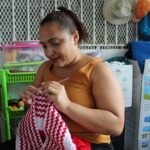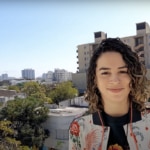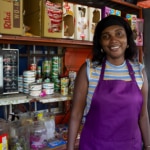Refugees, displaced persons and migrants: what do the 100 million people fleeing their homes have in common?
For the first time in history, the number of displaced people around the world exceeds 100 million, according to the latest UNHCR data. In Ukraine alone, eight million people have fled since February. To put it into perspective, if a country were formed with all of them, it would rank as the fourteenth most populous on the planet as they are equivalent to more than 1% of the world's population. This figure includes refugees and asylum seekers, as well as the 53.2 million people displaced by conflicts within their own countries. Many of them flee with little and have to start from scratch, sometimes from an even more vulnerable situation. Their settlement and success in the country of settlement depends very much on their legal status because displaced, migrant and refugee are not synonymous.

Differences between displaced persons, migrants, and refugees
- Displaced persons: are those who have been forced to leave their homes or habitual residences as part of a phenomenon known as forced migration. Many displaced persons move only internally within their own country. In this case, even though they have left their home, they still have the same legal status.
- Migrants: Economic migrants are people who have left their country in search of economic opportunities. Sometimes they come from places of extreme poverty and may risk their lives to enter a country in order to work. Each country's immigration policies differ from the other. This makes it easier in some countries than in others to obtain residence permits and therefore work, social security and health services.
- Refugees: Unlike migrants, refugees are people fleeing armed conflict, violence or persecution and are therefore forced to cross the border of their country in search of safety. To obtain this status, created by the 1951 Convention Relating to the Status of Refugees, they must apply for a special permit, a process that in many cases is often long and complicated, but in exchange, they receive the full protection of the host country. In other words, they can enjoy all the benefits to which native citizens are entitled. But the complexity of the process means that not all applicants are accepted. For example, in Chile, according to data from the National Migration Service, only 701 of the 21,847 (3.2%) refugee requests have been accepted in the last decade.
However, what all people who leave their homes fleeing poverty or violence have in common is that they must start a new life regardless of their status. It’s complex, because they lack basic services and care. For example, many of these people don’t have access to banks or other conventional financial services even though they did in their home countries. This is the case for many Venezuelans, according to Global Findex 2017 data, 73% of them had access to a bank account before leaving their country.
This poses a huge obstacle on their path to self-sufficiency and economic independence. Because without a bank account, they lack a safe place to save and receive money, they have far fewer options for making payments or accessing loans. In short, without these services, they cannot fully participate in a country's economy or build a stable life for themselves and their families.

Laura Otero, Venezuelan entrepreneur who is part of the STGO Cocina Communal Bank in Chile - FMBBVA
BBVAMF provides opportunities for refugees and migrants
In line with one the central strategic axes of the BBVA Microfinance Foundation (BBVAMF), social inclusion, four of its five microfinance institutions are leading initiatives to serve these segments.
Recently, in Chile, Fondo Esperanza has signed an agreement with the UN Refugee Agency (UNHCR) to provide access to microcredits and financial education to migrants through a community bank that has been set up in collaboration with the STGO Cocina program.
It supports refugees, migrants and Chileans through access to training, personalized sales advice and the use of a community kitchen that meets the quality standards set by the Ministry of Health for the preparation of various products with a sanitary resolution for sale.
"We are pleased with the incorporation of Fondo Esperanza to this program, because it’s a national reference in the field of comprehensive support to women entrepreneurs. This access to microcredits will allow the enterprises of the beneficiaries to be sustainable and profitable in the future, and will also allow them to continue raising the quality standards of their products," says Rebeca Cenalmor-Rejas, head of the UNHCR office in Chile.
To date, Fondo Esperanza has supported almost 800 migrant women entrepreneurs through different initiatives.
In 2021, BBVAMF has assisted more than 79,000 migrants, displaced persons and refugees in Latin America
The relationship between BBVAMF and UNHCR began 15 years ago. Microserfin, its entity in Panama, has been collaborating with UNHCR since 2008 to assist refugees. Unlike the program in Chile, in Panama, the entrepreneur must have refugee status and receive a referral from the Red Cross. By the end of March 2022, 328 operations have been granted.
One example is Shirley Mosquera, who fled Colombia with her two young children because of the violence between criminal gangs that endangered her life and that of her family. The first three years were very difficult, but along the way she found support from Microserfin, Red Cross and UNHCR, which helped her get back on her feet and find stability through entrepreneurship in her new host country.
Now, in addition to her store, she has other projects underway, such as natural drinks made from rice, oats and other special ingredients, which she now sells at the nearby school. In addition, she recently had the courage to start her third venture: customizing wooden chairs for themed birthday parties for children in her community.

Shirley Mosquera, Colombian entrepreneur and refugee living in Panama - FMBBVA
Shirley still has some dreams to fulfill, but she recognizes her achievements, "when I look back, I remember that we were evicted from houses because we couldn't pay and now, while I may not be in the place where I would like to be, I do have a stable position, my children can eat what they want, I can pay for their school and I even have my oldest son in a basketball school. That gives me satisfaction as a mother. And I'm even doing the things I want to do, I already see myself as an entrepreneur with my own business, I manage my time and my resources," she says.
Stories like Shirley's or those of the more than 79,531 migrants, displaced persons and refugees that BBVAMF has assisted in 2021, demonstrate that given the opportunity and access to financial products and services, these people manage to create a new life using their drive, discipline and creativity, which they have always carried inside them. As Yéssica Campos, assistant manager of Fondo Esperanza, pointed out, "entrepreneurs have no borders; they are united by the same drive to succeed".